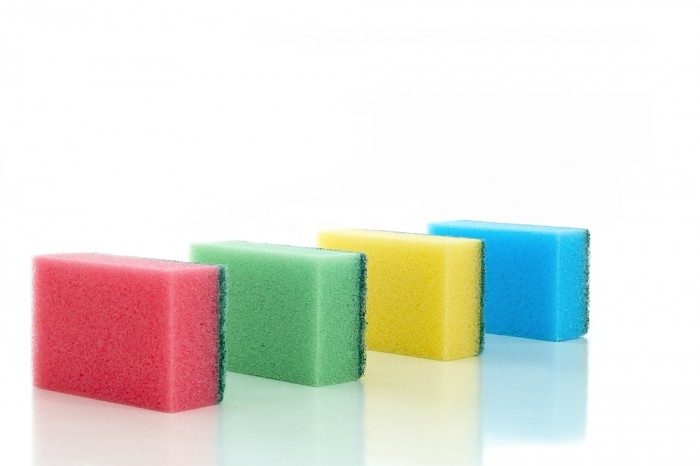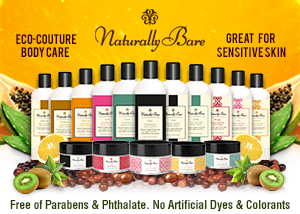To Sponge or Not to Sponge? An Eco Question

How green is your sponge? Everyday sponges are typically plastic-based and crafted from polyurethane (a petroleum-based ingredient), bleach, assorted sulfates, chemicals, and synthetic foam materials. So, interestingly, conventional sponges are not up to par with green cleaning efforts.
Additionally, anti-bacterial sponges may sound like a good idea, but they actually contain triclosan, a much-researched and potentially harmful chemical used in hand soaps and pesticides. While it is an antifungal agent, triclosan has been linked to cancer, plus liver and thyroid issues; it has also been found to be very harmful to marine life.
The porous quality of a sponge is inviting to bacteria, which provides an excellent reason for throwing it away after numerous uses. But, let’s face it, changing your sponge so frequently adds to non-compostable plastic landfill waste. How long does your sponge take to biodegrade? A year’s worth of discarded sponges from one household could take up landfill space for upwards of 52,000 years.
Oil-based sponges can’t be recycled (though you can creatively re-use them) or composted so they’re not a sustainable approach to dishwashing, either. However, 100 percent cellulose sponges are completely biodegradable, compostable, and they can be re-used.
Tip: Microwaving (for no more than a couple of minutes) a sponge or putting it in the dishwasher or into a pot of boiling water is a good way to easily eliminate germs and extend the life of your sponge.
With the high likelihood of a mess, having a hard-working sponge on hand in the kitchen will always rescue you from that spill on the countertop and that load of dishes in the sink. It will also help reduce paper towel use.
But, next time you’re shopping for a new sponge, instead of heading to the conventional sponge aisle for your new squeeze, check out these eco-focused, healthier sponge alternatives. They’ll help reduce landfill waste and keep your kitchen shining.
Twist Clean Naked Sponge (Editor’s recommendation)
• 100% cellulose and plant-based ingredients (wood pulp, cotton fiber)
• Dye and chemical free
• $2-4 for two; purchase here
Natural Home Tree Fiber Reusable Sponge/Cleaning Cloth
• Natural fiber from certified sustainably grown trees
• Absorbs 15 times its weight!
• $2.75 for two; purchase here
Natural Value Walnut Scrubber Sponge
• 50% post-consumer recycled material
• Organic walnut shell scrubber surface for tough cleaning
• $1.75 for one; purchase here
Twist Clean Dish Dumpling
• Made from agave twine
• Replaces heavy duty copper/plastic scrubbers
• $3.99 for one; purchase here


March 7th, 2014 at 2:35 am
Excellent! Thanks for bringing this situation to light! Time for sponge changes!
March 8th, 2014 at 7:18 pm
Thanks for reading, Marc….and for joining the conversation!